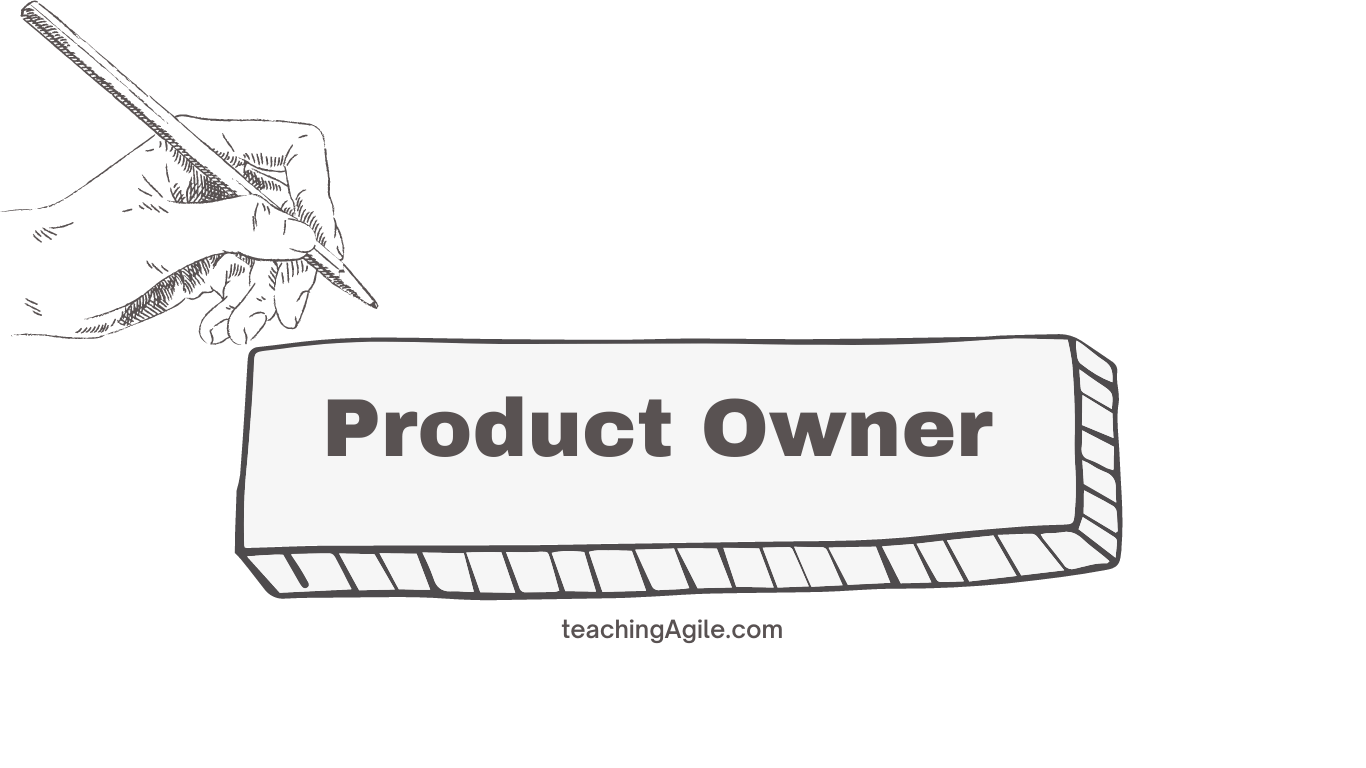
Scrum Role: Product Owner in Agile Methodology
 Scrum Role: Product Owner in Agile Methodology
Scrum Role: Product Owner in Agile Methodology
The Product Owner (PO) is accountable for one thing above all: maximizing the value of the product.
This isn't about writing user stories or managing a backlog tool. It's about understanding customer needs, navigating stakeholder interests, and ensuring the Scrum Team builds what matters most.
The Product Owner bridges business vision and technical execution, translating strategic goals into Product Backlog items that guide the team's work.
Along with the Scrum Master and Developers, the Product Owner forms one of the three essential accountabilities in Scrum.
In this comprehensive guide, we explore the Product Owner's responsibilities, the 6 stances they adopt, and how this role drives product success.
Quick Answer: What Does a Product Owner Do?
| Accountability | Description |
|---|---|
| Value Maximization | Accountable for maximizing the value of the product resulting from the Scrum Team's work |
| Product Goal | Develops and communicates the Product Goal that guides all Sprint work |
| Backlog Management | Creates, clarifies, and orders Product Backlog items based on value and priority |
| Stakeholder Collaboration | Works with stakeholders to understand needs while maintaining decision-making authority |
| Transparency | Ensures the Product Backlog is visible, understood, and shows what the team will work on next |
Table Of Contents-
What is a Product Owner?
The Product Owner is a key role in the Scrum development process. They work closely with stakeholders to create a vision for the product and communicate this vision to the Scrum team. The Product Owner is responsible for ensuring the success of the project, managing and optimizing the product backlog, and making key decisions when needed.
A skilled product owner is crucial to achieving these goals.
A Product Owner in a scrum project is responsible for defining product features and requirements that meet customer needs while also maximizing return on investment (ROI) for stakeholders.
In many ways, the Product Owner can be thought of as a project manager who is responsible for ensuring that everyone involved in a project has a clear understanding of what needs to be done and when it needs to be done.
However, unlike traditional project managers who have limited authority over teams working on different tasks simultaneously, product owners have full control over how features are developed in an Agile environment.
Key Responsibilities of a Product Owner
The Product Owner is a champion of the product, guiding the development efforts and ensuring that the team works on the most valuable features. Some of the primary responsibilities of the Product Owner include the following:
-
Communicating the Vision: The Product Owner works with stakeholders to create a vision for the product and communicates this vision to the Scrum team.
-
Managing the Product Backlog: The Product Owner is responsible for managing the product backlog, which includes prioritizing needs and participating in Scrum meetings.
-
Making Key Decisions: The Product Owner is expected to make decisions when the team needs them and actively participate in Scrum sprints.
-
Defining product requirements: The Product Owner works closely with stakeholders to gather, refine, and determine the requirements for each Product Backlog Item, ensuring that they are well-formed, actionable, and testable.
-
Collaborating with the Scrum Team: The Product Owner works closely with the Scrum Master and Development Team throughout the Sprint, providing guidance, answering questions, and making decisions on product functionality and priorities.
-
Accepting or rejecting completed work: The Product Owner is responsible for reviewing and approving or declining the work completed by the Development Team, ensuring that it meets the acceptance criteria and provides value to the customers.
-
Stakeholder management: The Product Owner acts as a middle layer or a liason between the Scrum Team and external stakeholders,, ensuring that their needs and expectations are understood and addressed in the product development process.
The Importance of a Product Owner in a Scrum Team
The Product Owner plays a crucial role in the Scrum team.
Without a Product Owner, the Scrum team would lack direction and focus, making it difficult to deliver a successful product.
The Product Owner plays one of the very important roles in driving the success of a Scrum team by:
- Ensuring that the team focuses on the most valuable features and delivers maximum value to the customers and stakeholders.
- Facilitating communication and collaboration between the Scrum Team and stakeholders, fostering a shared understanding of the product vision, goals, and requirements.
- Empowering the Scrum Team by providing clear guidance, decision-making authority, and support.
A skilled and dedicated Product Owner can significantly impact the effectiveness and success of a Scrum team, enabling them to deliver high-quality products that meet customer needs and generate positive outcomes for the organization.
Conclusion
In conclusion, the role of the Product Owner is indispensable in successfully implementing Agile Scrum methodology.
Acting as the bridge between the stakeholders' vision and the development team's execution, a Product Owner ensures that the highest value is being delivered in the most efficient manner.
The PO's responsibilities encompass defining, clarifying, and prioritizing the backlog, alongside fostering a collaborative environment where feedback and continuous improvement are encouraged.
Quiz on Product Owner in Scrum
Your Score: 0/6
Question: What is the primary responsibility of the Product Owner in Scrum?
Continue Reading
Scrum MasterA comprehensive look into the vital role of the Scrum Master in Agile teams. Understand their responsibilities, characteristics, and how they facilitate Agile processes.
Scrum Development TeamLearn about the Development Team in Scrum and how it can contribute to the success of your projects.
PSM-1™ Exam Format and StructureUnderstand the format and structure of the Scrum Master PSM-1™ certification exam to better prepare yourself for success.
Scrum Master vs. Project ManagerDiscover the key differences between Scrum Master and Project Manager roles, their responsibilities, and how they contribute to successful project delivery.
Effective Requirements Gathering: Techniques and TipsDiscover effective strategies for business analysts to master requirements gathering, ensuring projects are built on clear, actionable requirements.
Frequently Asked Questions (FAQs) / People Also Ask (PAA)
Are the roles of a Product Owner and a Product Manager identical?
Does a career as a Product Owner offer good prospects?
Do the roles of a Product Owner and a Business Analyst overlap?
Does the Product Owner role require technical expertise?
Is the role of a Product Owner similar to that of a Project Manager?
Can one person perform the roles of both the Product Owner and the Scrum Master?
What happens when a Product Owner introduces a new feature to the backlog?
Which certification for Product Owners is considered the best?